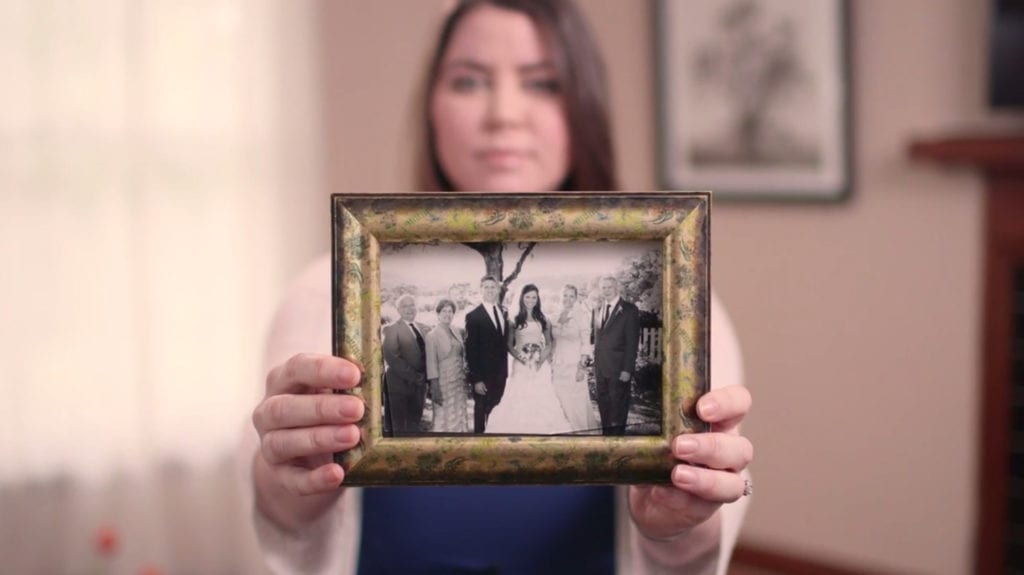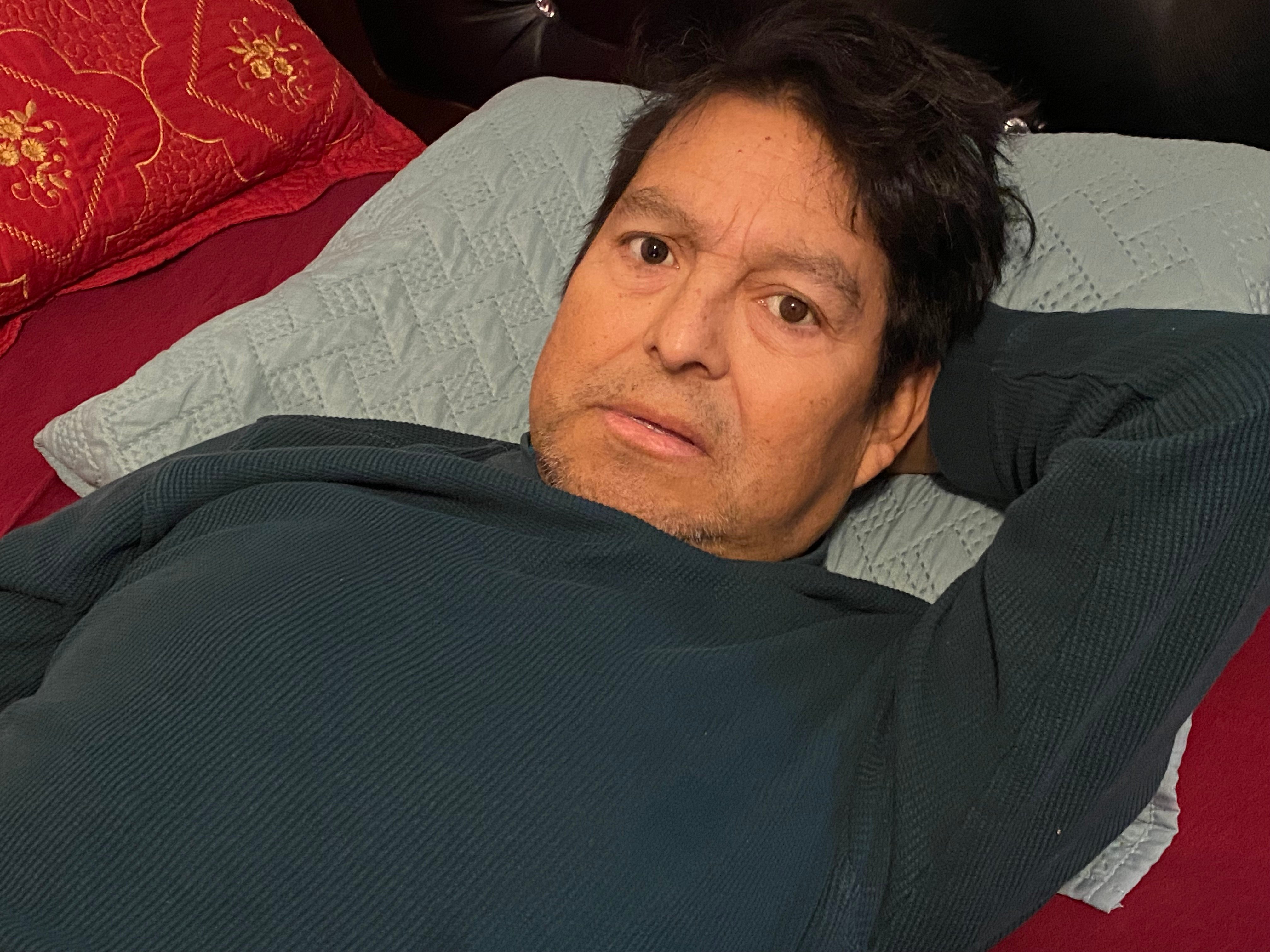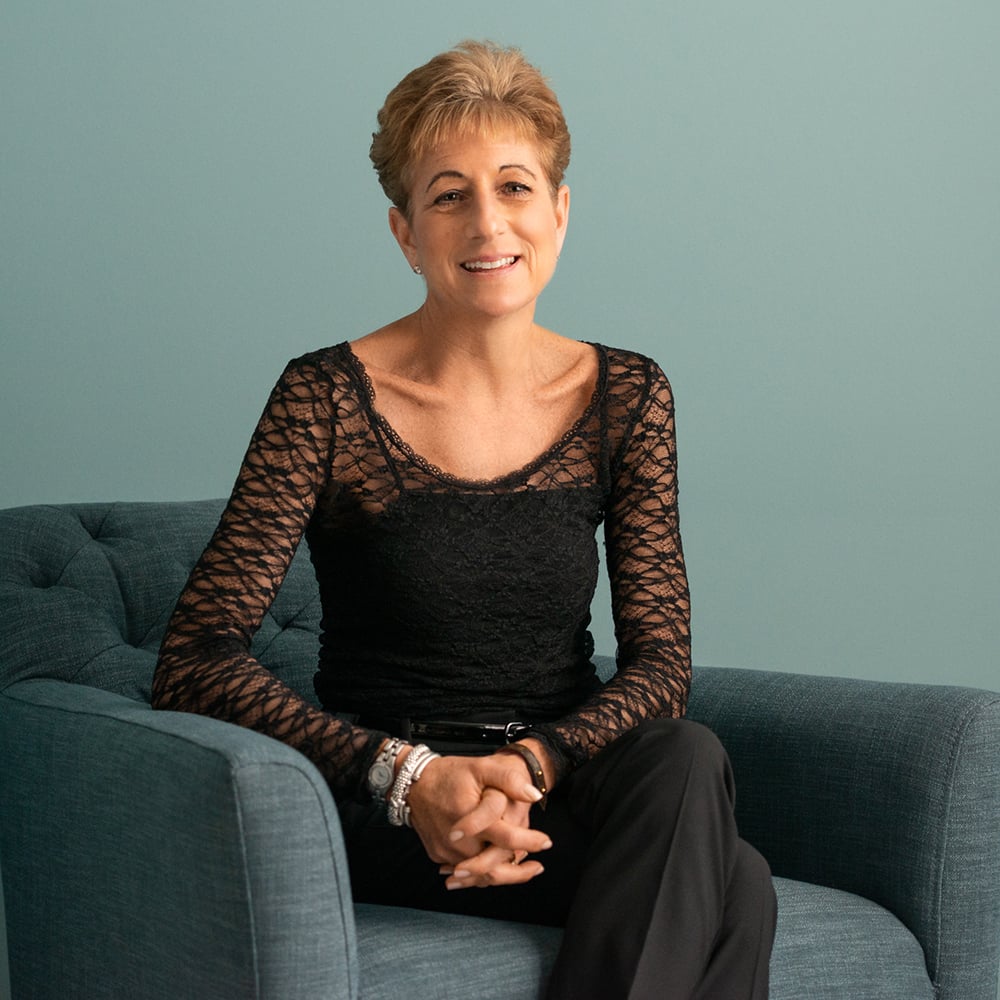Jesse shared his story in June of 2022.
Jesse Ankerholz’s wife, Andrea, passed away peacefully in 2021 using Colorado’s aid-in-dying law. After seeing the peace of mind the option provided Andrea, Jesse is committed to do what he can to help make medical aid in dying accessible to more people.
I knew very little about medical aid in dying before my wife, Andrea, chose to request a prescription under Colorado’s aid-in-dying law. She died on August 6, 2021, and I could not fathom what those final weeks would have looked like had she not been afforded the right to end her suffering.
In the summer of 2020, four years after having a double mastectomy, Andrea found out that her cancer was back and that it had metastasized. Her oncologist gave her six to 12 months to live without treatment, maybe a little longer with treatment. I talked her into at least giving treatment a shot. If it was manageable, perhaps it would give us more time together. I knew if the treatment negatively impacted her quality of life, however, that we would need to go a different direction.
Andrea endured treatments for about two months, but the side effects were grueling. She suffered migraines, nausea and vomiting, and her fatigue only worsened. Most days, she couldn’t even get out of bed. The little bit of energy she had, she mustered just to go to the doctor. She was suffering greatly and told me, “This will potentially increase my time here, but at what cost?” We reassessed, and I told her that I would support her in whatever decision she’d like to make.
Andrea was the type of person who would research things extensively, so she started researching articles on medical aid in dying. I didn’t know much about it before she shared that she might want to access the option. She hated hospitals and didn’t want to be doped up on pain meds, unable to even remember her own name. She didn’t want that for herself or for her family. She was also a fiercely independent woman; she did everything for herself, and she liked it that way.
I met Andrea in 2010 while working a job in Denver fixing stucco at a commercial building. There was a hair salon in the same center, and I was in desperate need of a haircut, so I went in to make an appointment. The next day, my friend and I went in for our appointments. Andrea was managing the salon, and as I was waiting for my friend to finish his appointment, Andrea and I stepped outside to have a cigarette and talk. She had cut hair for 24 years and told me that the person who had cut my hair had botched it. She took me back in to fix the haircut. The following day, I got a text from Andrea, who shared that she had stolen my phone number off the customer contact sheet, to please not tell her employer or she would lose her job, and she asked me if I would want to have coffee with her.
I said, “Absolutely, I would love that.”
To which she replied, “You do understand this is the older lady who fixed your hair, not the younger one who messed it up.”
I laughed and responded, “I am aware of who you are.”
Getting coffee at Starbucks was our first official date. We quickly spent a lot of time together, and it was golden from there. I was dead set against marriage before I met Andrea; she was the only person I ever even entertained the idea of marriage with. Two years later, we got married.
With her, everything just clicked. In the 12 years we were together, we never had ugly fights — we always talked out our problems. We balanced each other out. Her brand of crazy complemented my brand of crazy. She supported me and I her through everything, not just the cancer. She had an unbelievable sense of humor and was incredibly charitable; every fall, she crocheted hats and blankets to donate to our local senior center and cancer center, and handed them out to strangers by the post office. She was always putting others before herself. Everything about her was special.
In early 2021, both of Andrea’s doctors, who had promised to write a prescription, suddenly chose not to without explanation. She had been handed a death sentence. Knowing her time was short, trying to focus on saying her goodbyes, trying to enjoy her last days, getting things ready to give to loved ones, the last thing she needed was to be worried about who, if any doctor, would write her the prescription. Their actions are unforgivable; to put a terminally ill cancer patient through that was cruel.
With the help of Compassion & Choices, Andrea was able to connect with a doctor who would support her decision.
The hour-long drive to Denver to pick up Andrea’s aid-in-dying medications and the drive back home were more difficult than I had anticipated. The gravity of the situation smacked me in the face. I had pushed the reality of Andrea’s mortality to the back of my mind. I had been focused on the present, which was me starting my days at 4 a.m. and ending them at 10 p.m., supporting Andrea’s daily needs and running my business full time. On the drive to the pharmacy and back, it all finally hit me. But as soon as I saw Andrea’s relief at having the medication in hand, all that heaviness became feelings of gratitude.
She had been stressed out of her mind from her previous doctors pulling their support. Once I returned with the medication, she was a completely different person. A weight had been lifted off her chest. She was brighter and bubbly. She didn’t have that fear of suffering needlessly until her body gave up looming over her head anymore. She knew the prescription was now available to her if she needed it.
Andrea was her happy self again, which meant for the remainder of her time, she could live her life to the fullest extent. We could make the most of our time together. We fed giraffes at the Denver Zoo, and we went out to Arizona and Nebraska to see family and say her goodbyes.
Andrea’s pain toward the end was bad. She refused to take the full prescribed dose of morphine; she suffered through the pain in order to be able to interact with people the way she wanted to. Her health took a sharp decline, and she went from sleeping about eight hours a day to 20. Her body couldn’t keep up anymore, and she was constantly exhausted.
Andrea pictured what her last day would look like and planned for it. She wanted to spend time with family, and she was going to smoke a pack of cigarettes, drink a strawberry margarita and enjoy the sunset with me. Of course, things rarely go exactly as planned.
She wanted to do everything outside, but the mosquitoes were so bad that wasn’t an option. We endured the mosquitoes to watch the sunset on our rocking swing, as she pictured it, and she smoked half a cigarette. As she put it out she said, “This is disgusting. I don’t know how I did this for so many years.” She also changed her mind about the strawberry margarita.
She took the medication on August 5 at 9:30 p.m., and she was asleep within a couple of minutes. She passed away four hours later, at 1:30 a.m. on August 6.
Two months after Andrea died, I took a 17-day road trip across America, covering over 4,000 miles, to hand-deliver items she had left for family and spread her ashes along my journey. I promised Andrea anytime I go somewhere I would take her with me and spread some of her ashes. In the fall of this year, I will visit Loch Skeen, Scotland — a place she really wanted to visit — and hike an hour up to spread some of her ashes.
Throughout my journeys, I have shared Andrea’s story with anyone who will listen. My hope is that I can ensure people with terminal illness are empowered in the final stage of life. I know for Andrea, having the choice and power over the way she left this world made all the difference.
Read More:
Boulder Daily Camera - Colorado’s End-of-Life Options Act helps terminal patients die with dignity
The Colorado Sun - Colorado may become the 3rd state to drop its medical aid-in-dying residency requirement






